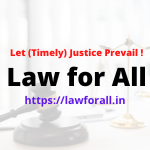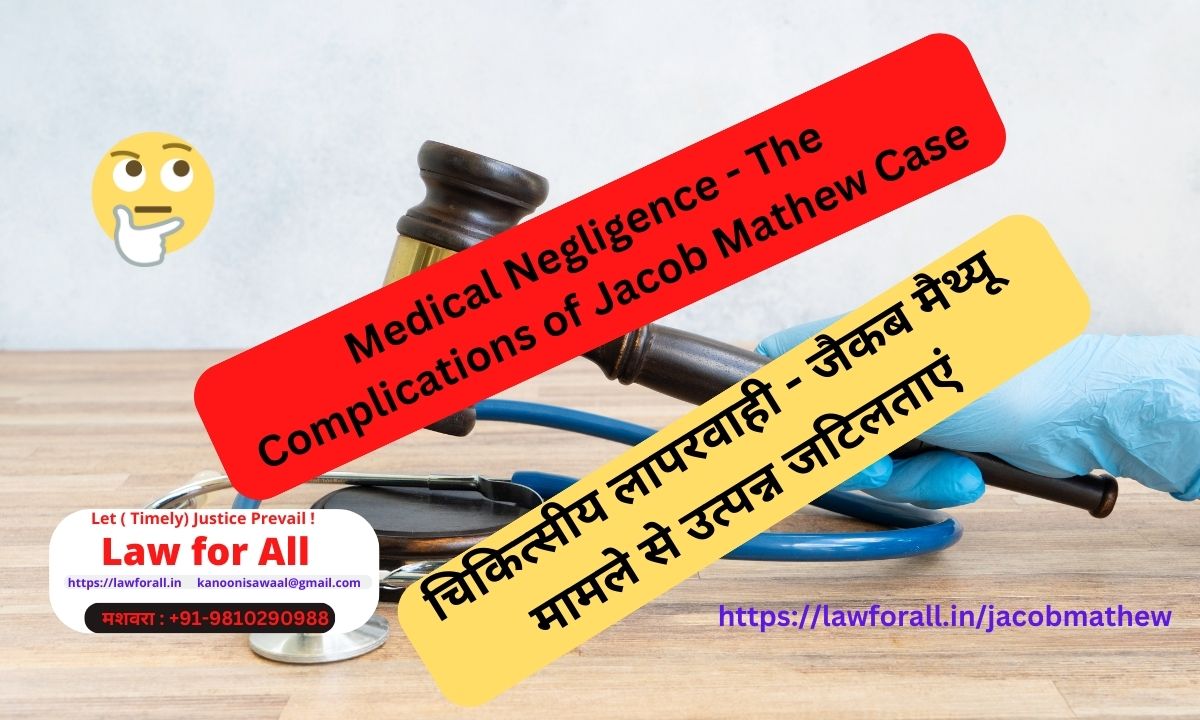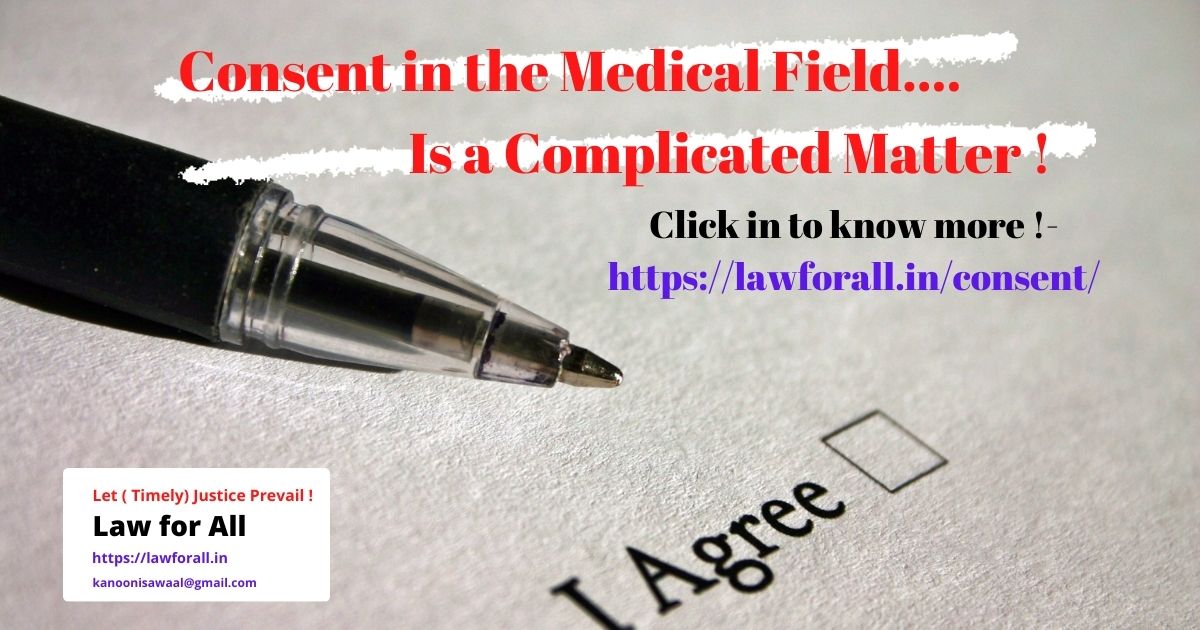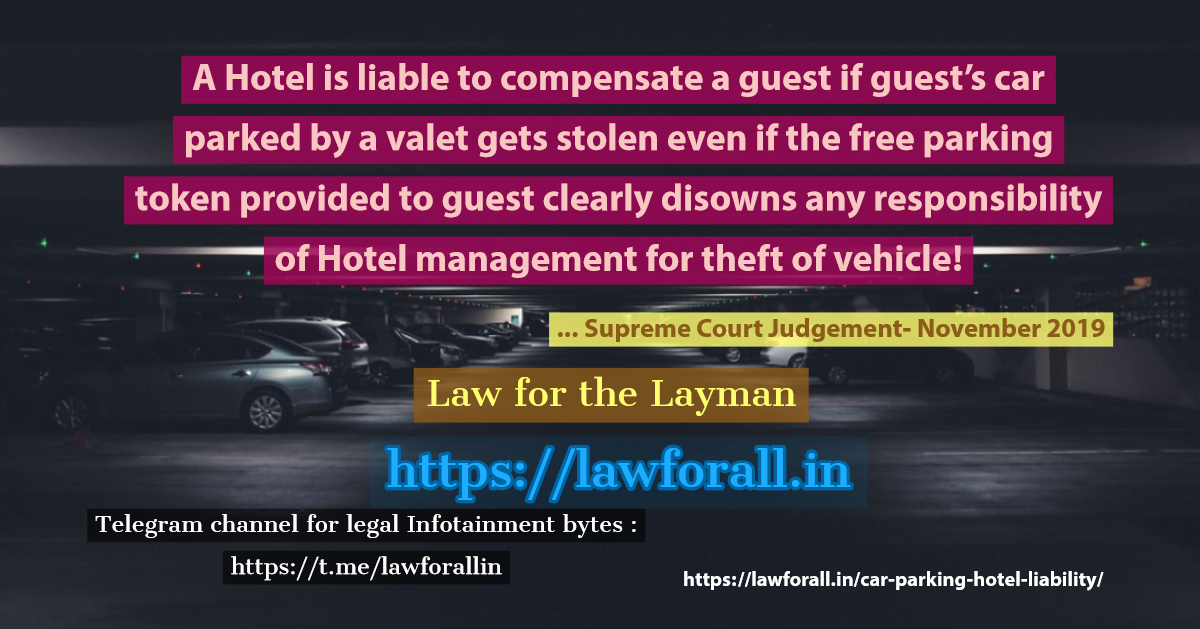Medical Negligence is an aspect of jurisprudence with many unique and complex aspects which make it stand out. At the same time cases of medical negligence are growing fast in India. Perhaps they are aided by the news clippings that we see of award of some amount or another which makes the layman believe that justice is well served, and that doctors are becoming increasingly negligent.
While data does suggest that the latter has grains of truth ( see excerpts later in this Article), nothing could be farther from the actual realities as for the former. What comes out in public news reports is only the tip of the iceberg- cases that achieved some level of justice. What does not come out are cases that are not even lodged, or even if lodged face obstacles not present at all in other fields of Law. Usually the layman is not even aware of these obstacles ( some of which are well intended no doubt) . And the information available on the Net etc.does not bring them out, couched as it is in legalese.
We have talked about some aspects of medical negligence as under :
- Who Suffers when Ghosts Operate ?
- Consent in Medical Field- a Complicated Matter
- Beware the Bolam Bite !
- Consent Forms in Medical Procedures in India
- Forgery of Medical Records
- Medical Negligence – Vicarious Liability of Doctors
Before any embarks on efforts to get justice in the medical negligence field, he/she must be aware of what to expect and so do read the above, as well as this article. Forewarned is forearmed !
One aspect is the consequence of a landmark judgement which is presently the law of the land in India. It almost invariably comes up in the processes of getting justice in Medical Negligence cases. Yet, it is fraught with difficulties which are not easy to overcome. This article puts them forward. Hopefully the powers that be will read and come up with some equitable solutions !
You may download the complete Judgement from here.
Brief Summary
Patient Jiwan lal was suffering from advanced stage of cancer. While the family was advised to keep patient at home (being a terminal stage situation), his sons requested admission. Records indicated sons were influential persons occupying important positions in Government. They prevailed and the patient was admitted to a private ward in CMC Hospital, Ludhiana.
After admission, at 11 pm of 22-02-1995, he suddenly had difficulty in breathing. His elder son, Vijay Sharma called the nurse and doctor after seeing his father’s condition. But no doctor turned up for about 20-25 minutes. Thereafter, Dr. Jacob Mathew and Dr. Allen Joseph came to the room for the patient. The patient was immediately connected with an oxygen cylinder to his mouth but the problem increased. The oxygen cylinder was found to be empty, and no other oxygen cylinder was available in the room. Vijay Sharma went to the adjoining room and brought another gas cylinder but there were no arrangements to make it functional . In the midst of this, around 5-7 minutes were wasted. Another doctor came and declared the patient dead.
A Complaint was filed alleging carelessness of the doctors and nurses. Based upon that, a First Information Report (FIR) under Section 304A read with Section 34 of the IPC was registered. The Judicial Magistrate First Class farmed charges u/s 304A. The Appellant ( Dr. Jacob Mathew) filed a Revision Petition in Court of Sessions Judge which was dismissed. Next, the Appellant filed an appeal u/s 482 at High Court which too was dismissed. An application to recall this order was also dismissed. The Appellant filed a Special Leave Petition at Supreme Court
The Appeal was upheld by the Hon’ble Supreme Court and the prosecution of the Appellant quashed.
While the Case discussed many facets of medical negligence, it also set out guidelines for prosecution of doctors where criminal rashness or negligence is alleged. These are as under.
Repeating the relevant extracts of the judgement ( see close to the end of the Judgement, Page 20 ). Please read and understand these well since these are very important ! :
- Statutory Rules of Executive Instructions incorporating certain guidelines need to be framed and issued by the Government of India and/or the State Governments in consultation with the Medical Council of India. So long as it is not done, we propose to lay down certain guidelines for the future, which should govern the prosecution of doctors for offences of which criminal rashness or criminal negligence is an ingredient.
- A private complaint may not be entertained unless the complainant has produced prima facie evidence before the court in the form of a credible opinion given by another competent doctor to support the charge of rashness or negligence on the part of the accused doctor.
- The investigating officer should before proceeding against the doctor accused of rash or negligent act or omission, obtain an independent and competent medical opinion preferably from a doctor in Government service qualified in that branch of medical practice who can normally be expected to give an impartial and unbiased opinion in regard to the facts collected in the investigation.
- A doctor accused of rashness or negligence may not be arrested in a routine manner simply because a charge has been leveled against him unless his arrest is necessary for furthering the investigation or for collecting evidence or unless the investigation officer feels satisfied that the doctor proceeded against would not make himself available to face the prosecution unless arrested.
The intent behind these instructions is no doubt good. Doctors save lives and medical science is not perfect. So a doctor should be able to perform his/ her task without fear of harassment.
Except it leads to severe difficulties on the ground for genuine cases as well. These are :
- The Medical Council of India, Delhi Medical Council, Delhi Medical Association and Indian Medical Association were was also heard in this Judgement made in 2005. See page 3 of the Judgement. Specifically, recommendations were asked from MCI, as extracted above.
It took the National Medical Commission ( which replaced the Medical Council of India vide the NMC Act, 2019 ) about 21 years to come up with the suggested guidelines ! Find the document here. Note that it makes NO mention of any role either of the State Medical Council (SMC) or the National Medical Commission (NMC).
And as of writing of this Article, the Union of India has yet to come up with a response, or implement those. - How does a person comply with # 2 above. From where does one find that ” another competent doctor” ?
If you have been robbed, would you be required to get an opinion from another robber that you have been robbed, for the court to even look into your complaint ? Surely not, since a robbery is ” self-evident”. Unfortunately, thi sis not the case for medical negligence, usually. - Medical Procedures do not happen in the public eye ( a robbery usually does and is so easier to establish! ). And the witnesses themselves could be the suspect / accused ! So how is one to even know of a lapse even if it happens ?
- In these circumstances, the only thing that may help are ” Medical Records”. And MCI/NMC rules require they be given within 72 hours of demand by patient or next of kin. This is part of the ” Code of Medical Ethics Regulations 2002″ , explicitly set out at Para 1.3.2. Click here for the complete code. Yet, this rule is observed more in the exception. So much so that in many cases records are never provided. And there is no punishment for this usually.
Obviously, more the delay more is the possibility of alterations and outright forgeries which may never be detected since the records are in complete control of the suspect / accused only !
On 23rd May 2022, the NMC invited Comments on their Draft of ” National Medical Commission Registered Medical Practitioner ( Professional Conduct) Regulations 2022.
Mostly this went noticed, as these things usually do. For the interested however, here is the notice and the draft-please click here.
In the same, NMC proposes increasing this period for providing Medical Records to five days !! See Page 6, Para 13 (b). Why is this needed is not clear ! - Of course getting the medical records still does not lead to anything. Can the lay patient / next of kin ( collectively termed as ” patient” herein for ease) comprehend them to even suspect something ? And/ or find an unbiased ” another competent doctor”.
- Given this stage of affairs, only the grossest of negligence cases – usually where the patient is totally surprised and shocked at the turn of events – are taken up further. Usually the patient turns up in a Police Station looking for help.
- And usually, the Police , if it does take up the case, sends the Complaint and all the Records they can get the State Medical Council.
- The State Medical Council by no means qualifies as ” preferably a doctor in Government Service” as is required by the Hon’ble Supreme Court Judgement. It is a body “of, for and by” the Doctors, a majority of them being in the Private Service.
- Yet, the SMC conveniently accepts all the cases sent to it, instead of saying that they be forwarded to a doctor in Government Service, as mandated by the Jacob Mathew Judgement. So, indeed all SMC/ NMC adjudications on medical negligence cases are in direct disregard of the Honorable Supreme Court decision in this landmarkJacob Mathews case- a case in which the MCI as well as DMC was heard ! And further, even the NMC suggestiosn , coming after about 21 years, do NOT say that Medical Negligence cases be sent to it.
- The results of elected bodies ” of, for and by” the doctors deciding cases of medical negligence cases against doctors only are almost foregone !
Here some data for those interested. Read carefully !
On March 8, 2016, the 92nd report on the functioning of the Medical Council of India (MCI) was placed before both Houses of Parliament by Professor Ram Gopal Yadav, Chairman of the Parliamentary Standing Committee of Health and Family Welfare. It makes for very interesting reading of of the overall medical landscape in the Country. Following are some excerpts from it :
” The Committee notes that the Ethics Committee of the MCI presently consists entirely of medical doctors and is thus a self-regulatory body. But all over the world, it has now been realized that the medical profession (or any profession for that matter) tends to protect its own flock. The Committee, therefore, recommends that the new Board of Medical Ethics should also have non-doctor lay members from different fields.
Page 65
“…. the MCI has been unresponsive to health system needs (of the country)… ”
Page 85
“The Medical Council of India, when tested on the above touchstone, has repeatedly been found short of fulfilling its mandated responsibilities…the MCI, as presently elected, neither represents professional excellence nor its ethos. The current composition of the Council reflects that more than half of the members are either from corporate hospitals or in private practice. The Committee is surprised to note that even doctors nominated under Sections 3(1) (a) and 3(1) (e) to represent the State Governments and the Central Government have been nominated from corporate private hospitals which are not only highly commercialised and provide care at exorbitant cost but have also been found to be violating value frameworks…the current composition of the MCI is biased against larger public health goals and public interest…”
Page 87-88
“The Committee observes that the oversight of professional conduct is the most important function of the MCI. However,the MCI has been completely passive on the ethics dimension which is evident from the fact that between 1963–2009, just 109 doctors have been blacklisted by the Ethics Committee of the MCI… Due to crass commercialization of the health sector, many unprincipled doctors and private sector hospitals have lost their moral compass and overcharge or subject their hapless patients to unnecessary surgeries and diagnostic procedures. The instance of unethical practice continues to grow due to which respect for the profession has dwindled and distrust replaced the high status the doctor once enjoyed in society. What is of greater concern to the Committee is that the medical profession has not been transparent in dealing with complaints. It is a matter of surprise that despite the worst kind of gross unethical practices happening by way of ghost faculty, fake patients and hired instruments and substantial amount of money (not white, of course) reportedly changing hands at the time of inspections, there is little proactive action on the part of the MCI to deal with
Page 102
this malady…”
For those interested, the complete report may be found here, while still available.
While the NMC Act came into existence in 2019, not much has apparently changed since then in the functioning. While increasingly, the patients are getting frustrated.
Given all above, it is nothing short of a miracle that a medical negligence case results in relief to the patient.
What solutions can be fair and unbiased to all parties ? If any has any thoughts, comment in !
So, know the facts dear reader, and do not be misled by the headlines .
For any further queries and discussions, please see the the contact us page.
किसी भी प्रश्न और चर्चा के लिए कृपया हमसे संपर्क करें। यह पृष्ठ देखें।
कुछ शब्द हिंदी में…
चिकित्सीय लापरवाही- जैकब मैथ्यू मामले की जटिलताएँ
चिकित्सीय लापरवाही न्याय का एक जटिल क्षेत्र है। वहीं भारत में चिकित्सकीय लापरवाही के मामले तेजी से बढ़ रहे हैं। शायद लोगों को ख़बरों से लगता है कि इस क्षेत्र में न्याय अच्छा और आसान है, और चिकित्सीय लापरवाही बढ़ रही है।
चिकित्सीय लापरवाही के केसेस ज़रूर बढ़ रहे हैं। लेकिन ऐसा बिलकुल नहीं है कि इस क्षेत्र में न्याय पद्धति आसान है. खबरें सिर्फ सफल मामलों की बात करती हैं। वह मामले जो कोर्ट तक नहीं पहुंचे , बीच में ही मरीज़ों द्वारा छोड़ दिए गए, या असफल रहे – इन सब का तो कहीं ज़िक्र भी नहीं होता।
जो मामले दर्ज भी किए जाते हैं तो उन्हें ऐसी बाधाओं का सामना करना पड़ता है जो कानून के अन्य क्षेत्रों में मौजूद ही नहीं होतीं। आम आदमी को इन बाधाओं के बारे में पता भी नहीं होता है। और नेट पर कानूनी लहज़े में लिखे लेखों से जमीनी जानकारी मिलती भी नहीं।
हमने चिकित्सीय लापरवाही के कुछ पहलुओं के बारे में यहाँ बात की है:
- जब भूत ऑपरेशन करें तो कौन ज़िम्मेदार ?
- चिकित्सा क्षेत्र में सहमति- एक जटिल मामला
- बोलम के काटे से सावधान रहें!
- भारत में चिकित्सा प्रक्रियाओं में सहमति प्रपत्र
- मेडिकल रिकॉर्ड की जालसाजी
- चिकित्सा लापरवाही – डॉक्टरों की अप्रत्यक्ष जिम्मेदारी
चिकित्सा लापरवाही के क्षेत्र में न्याय पाने के प्रयास शुरू करने से पहले इन्हें पढ़ लें। आप को ही लाभ होगा !
चिकित्सीय लापरवाही में न्याय पाने की मुश्किलें एक बहुत महत्वपूर्ण फैसले का परिणाम है जो कि भारत में अभी कानून है। मेडिकल लापरवाही के मामलों में न्याय पाने की प्रक्रिया में यह लगभग हमेशा सामने आता है। आम आदमी के लिए यह कठिनाइयों से भरा है जिनको सुलझा पाना आसान नहीं है। यह लेख उन्हें सामने रखता है. उम्मीद है कि जो लोग इस बारे में कुछ कर सकते हैं वह इसे पड़ेंगे। और आम लोग भी चेतन होंगे ।
आप पूरा जजमेंट यहां से डाउनलोड कर सकते हैं।
संक्षिप्त विवरण
मरीज जीवनलाल कैंसर से पीड़ित थे। डॉक्टरों का कहना था कि वह घर पर ही रहे क्योंकि कैंसर आखरी स्टेज पर था । लेकिन बेटे चाहते थे कि उनकीअस्पताल में अच्छी देखभाल हो । बेटे सरकार में प्रभावशाली से इसलिए मरीज को सीएमसी अस्पताल लुधियाना में एक प्राइवेट वार्ड में एडमिट कर लिया गया ।
22 फरवरी 1995 रात मरीज को अचानक सांस लेने में दिक्कत हुई। उनके बड़े बेटे विजय शर्मा ने नर्स और डॉक्टर को बुलाया लेकिन करीब 20-25 मिनट तक कोई नहीं आया। इसके बाद डॉक्टर जैकब मैथ्यू और डॉक्टर एलेन जोसेफ मरीज के कमरे में आए और तुरंत मरीज के मुंह पर ऑक्सीजन सिलेंडर लगाया। लेकिन सांस की तकलीफ बढ़ती गई। यह पाया गया कि ऑक्सीजन सिलेंडर खाली है और कमरे में कोई दूसरा सिलेंडर नहीं है। विजय शर्मा बगल के कमरे में गए और दूसरा सिलेंडर लेकर आए लेकिन उसको चालू करने की कोई व्यवस्था नहीं थी । इस दौरान करीब 5-7 मिनट बर्बाद हो गए। दूसरे डॉक्टर आए और उन्होंने मरीज को मृत घोषित कर दिया।
आईपीसी की धारा 304 ए और धारा 34 के तहत डॉक्टरों और नर्सों पर लापरवाही का आरोप लगाते हुए शिकायत दर्ज कराई गई । न्यायिक मजिस्ट्रेट प्रथम श्रेणी ने धारा 304ए के तहत आरोप तय किए। अपीलकर्ता (डॉक्टर जैकब मैथ्यू) ने सत्र न्यायाधीश की अदालत में पुनरीक्षण याचिका दायर की जिसे खारिज कर दिया गया। इसके बाद अपीलकर्ता ने उच्च न्यायालय में धारा 482 के तहत अपील दायर की जिसे भी खारिज कर दिया गया। इस आदेश को वापस लेने की अर्जी भी खारिज कर दी गई । आखिरकार अपीलकर्ता ने सुप्रीम कोर्ट में एक विशेष अनुमति याचिका (SLP) दायर की।
माननीय सर्वोच्च न्यायालय द्वारा अपील को बरकरार रखा गया और अपीलकर्ता के ऊपर दर्ज मामला रद्द कर दिया गया।
इस मामले में चिकित्सीय लापरवाही के कई पहलुओं पर चर्चा है । सबसे महत्वपूर्ण है कि सुप्रीम कोर्ट द्वारा कुछ दिशाएं दी जिनका पालन करना जरूरी है, अगर किसी डॉक्टर पर आपराधिक लापरवाही या लापरवाही का आरोप लगाया गया हो। इन निर्देशों को आप जजमेंट के आखिर में पृष्ठ 20 पर पढ़ सकते हैं ।
यह निर्देश बहुत महत्वपूर्ण है और कहते हैं:
- मेडिकल काउंसिल ऑफ इंडिया की सलाह लेते हुए भारत सरकार या राज्य सरकारों को नियमों को जारी करने की आवश्यकता है। लेकिन जब तक यह नहीं होता हम यह दिशा निर्देश निर्धारित करते हैं जो तब लागू होंगे जब किसी भी डॉक्टर पर आपराधिक लापरवाही का आरोप है।
- एक निजी शिकायत पर तब तक विचार नहीं किया जा सकता जब तक कि शिकायतकर्ता ने आरोपी डॉक्टर की लापरवाही के आरोप का समर्थन करते हुए किसी और सक्षम डॉक्टर द्वारा विश्वसनीय राय अदालत में पेश नहीं की हो।
- जांच अधिकारी को लापरवाही से किए गए कार्य या चूक के आरोपी डॉक्टर के खिलाफ कार्रवाई करने से पहले, मेडिकल प्रैक्टिस की उस शाखा में योग्य सरकारी सेवा के डॉक्टर (जिससे आमतौर पर निष्पक्ष और निष्पक्ष राय देने की उम्मीद की जा सकती है) से एक स्वतंत्र और सक्षम चिकित्सा राय प्राप्त करनी चाहिए ।
- लापरवाही के आरोपी डॉक्टर को सिर्फ इसलिए गिरफ्तार नहीं किया जा सकता क्योंकि उसके खिलाफ आरोप लगाया गया है, जब तक कि जांच को आगे बढ़ाने या सबूत इकट्ठा करने के लिए उसकी गिरफ्तारी जरूरी न हो या जब तक जांच अधिकारी संतुष्ट न हो जाए कि डॉक्टर मुकदमे का सामना करने के लिए पेश नहीं होगा ।
यह सब निर्देशों के पीछे से आशय उचित हैं । चिकित्सा विज्ञान परफेक्ट नहीं है डॉक्टर जीवन बचाते हैं , इसलिए किसी भी डॉक्टर को सजा के डर के बिना अपना कार्य करने के लिए कानून अनुमति और प्रोत्साहन मिलना चाहिए।
लेकिन इनमें यह मुश्किलें हैं:
- 2005 में आए इस फैसले में मेडिकल काउंसिल ऑफ इंडिया, दिल्ली मेडिकल काउंसिल, दिल्ली मेडिकल एसोसिएशन और इंडियन मेडिकल एसोसिएशन का पक्ष भी सुना गया था। जजमेंट का पेज 3 देखें। विशेष रूप से, एमसीआई से सलाह मांगी गई थीं, जैसा कि ऊपर बताया गया है। राष्ट्रीय चिकित्सा आयोग ने एनएमसी अधिनियम, 2019 के माध्यम से मेडिकल काउंसिल ऑफ इंडिया की जगह ली है । आखिर में एनएमसी में यह सलाह तकरीबन 21 साल में दी । इसके बाद भी उनकी सलाह में राज्य चिकित्सा परिषद (एसएमसी) या राष्ट्रीय चिकित्सा आयोग (एनएमसी) की किसी भी भूमिका का कोई उल्लेख नहीं है। इस सलाह को आप यहां से डाउनलोड कर सकते हैं । अभी तक भारतीय सरकार ने इन सलाह पर पूर्ण रूप से अमल नहीं किया है । और कोई कानून नहीं बना है ।
- कोई व्यक्ति निर्देश नंबर दो का पालन कैसे कर सकता है ? उसको वह “सक्षम डॉक्टर” कहां से मिलेगा ? अगर आप को लूट लिया हो तो क्या अदालत आप की शिकायत लेने से पहले आपको किसी अन्य डाकू से राय लेने को कहेगी जो यह बताएगा सचमुच आपको लूट लिया गया है ?? निश्चित रूप से नहीं, क्योंकि डकैती “स्वतः-स्पष्ट” होती है। दुर्भाग्य से चिकित्सकीय लापरवाही मेंआमतौर पर ऐसा नहीं होता।
- चिकित्सा प्रक्रियाएं अमूमन लोगों की नज़रों के सामने नहीं होती हैं (एक डकैती आमतौर पर होती है और इसे स्थापित करना बहुत आसान है!)। बहुत चिकित्सा ऑपरेशन थिएटर वगैरह में होती है और उसमें गवाह स्वयं ही संदिग्ध/आरोपी हो सकते हैं!
तो अगर उस चिकित्सा में कोई चूक हुई भी हो तो उसे कोई कैसे जान सकता है। वह भी तब जब मरीज या उसका परिवार खुद डॉक्टर नहीं है और डॉक्टरी प्रक्रिया के बारे में कुछ नहीं जानता । - इन परिस्थितियों में, एकमात्र चीज़ जो मदद कर सकती है वह है “मेडिकल रिकॉर्ड”। शायद मरीज यह रिकॉर्ड किसी दूसरे सक्षम डॉक्टर को दिखा सकता है और उससे ओपिनियन ले सकता है। एमसीआई/एनएमसी नियमों के अनुसार मरीज़ या उसके निकटतम रिश्तेदार द्वारा मांगे जाने के 72 घंटों के भीतर मेडिकल रिकॉर्ड्स दिया जाना आवश्यक है। यह “चिकित्सा आचार संहिता विनियम 2002” का हिस्सा है, और स्पष्ट रूप से पैरा 1.3.2 में निर्धारित है। संपूर्ण कोड के लिए यहां क्लिक करें । फिर भी यह नियम अपवाद में ही अधिक देखा जाता है। इतना कि कई मामलों में रिकॉर्ड कभी उपलब्ध ही नहीं कराए जाते। और इसके लिए आमतौर पर कोई सज़ा नहीं होती।
- जाहिर है, जितनी अधिक देरी होगी,मेडिकल रिकॉर्ड्स में बदलाव और जालसाजी की संभावना उतनी ही अधिक होगी। जिसका कभी पता नहीं चल पाएगा क्योंकि मेडिकल रिकॉर्ड्स खुद संदिग्ध/आरोपी के पूर्ण नियंत्रण में होते हैं!
यह सब चीजें देखते हुए केवल वही चिकित्सीय लापरवाही के मामले सामने आते हैं जिनमें मरीज या उनका परिवार चिकित्सा के दौरान हुई घटनाओं से एकदम आश्चर्यचकित या स्तब्ध हो जाता है इस स्थिति में आमतौर पर मरीज न्याय की तलाश में पुलिस स्टेशन पहुंचता है। अगर पुलिस उसका मामला ले भी ले तो भी उसकी शिकायत और सारे रिकॉर्ड ज्यादातर राज्य चिकित्सा परिषद को भेजती है ।
और राज्य चिकित्सा परिषद यह जानते हुए भी कि उच्चतम न्यायालय से उसको इस शिकायत को देखने का कोई अधिकार नहीं है , यह नहीं बोलती की यह शिकायत जैकब मैथ्यू फैसले के अनुसार सरकारी सेवा में एक डॉक्टर के पास भेजा जाए । बल्कि राज्य चिकित्सा परिषद सारी शिकायतें हैं खुशी खुशी ले लेती है और उन पर फैसला सुनाती है। यह माननीय सर्वोच्च न्यायालय के फैसले की सीधे अवहेलना हैं – एक ऐसा मामला जिसमें एमसीआई के साथ-साथ डीएमसी को भी सुना गया था! और तो और, लगभग 21 वर्षों के बाद आने वाले एनएमसी सुझाव में भी यह नहीं कहा गया है कि मेडिकल लापरवाही के मामले उसके पास भेजे जाएं।
राज्य चिकित्सा परिषद / मेडिकल काउंसिल ऑफ इंडिया पूरी तरह से डॉक्टरों के लिए है ऐसा पार्लियामेंट की एक रिपोर्ट में भी माना गया है । तो उसके फैसले कैसे होंगे यह समझा जा सकता है !
कौन से समाधान सभी पक्षों के लिए निष्पक्ष हो सकते हैं? यदि किसी के पास कोई विचार है तो टिप्पणी करें!
तो प्रिय पाठको तथ्यों को जानो, सिर्फ सुर्खियों से गुमराह नहीं हों !
For any further queries and discussions, please see the the contact us page.
किसी भी प्रश्न और चर्चा के लिए कृपया हमसे संपर्क करें। यह पृष्ठ देखें।





One thought on “Medical Negligence- the Complications of Jacob Mathew Case”